Whether you’re a first-time homeowner or you just moved to a different home, you may have a lot of questions when it comes to caring for your lawn. In fact, you might even be worried that your lack of knowledge could end up costing you money—or results—if you make mistakes.
There’s no question that caring for a lawn can be a lot of work. You want to do the best possible job, but you might not even know where to begin. That’s why we’ve rounded up a series of tips on lawn care for a new homeowner so that you can get off on the right foot with your new property.
How To Mow Your New Lawn
While most homeowners think of mowing as relatively straightforward, there are a few tips that can make this service most effective on your lawn. For one, make sure that you mow to the proper height. A lawn that is mowed too short can become a target for weeds. Aim to mow around 3.5 inches. 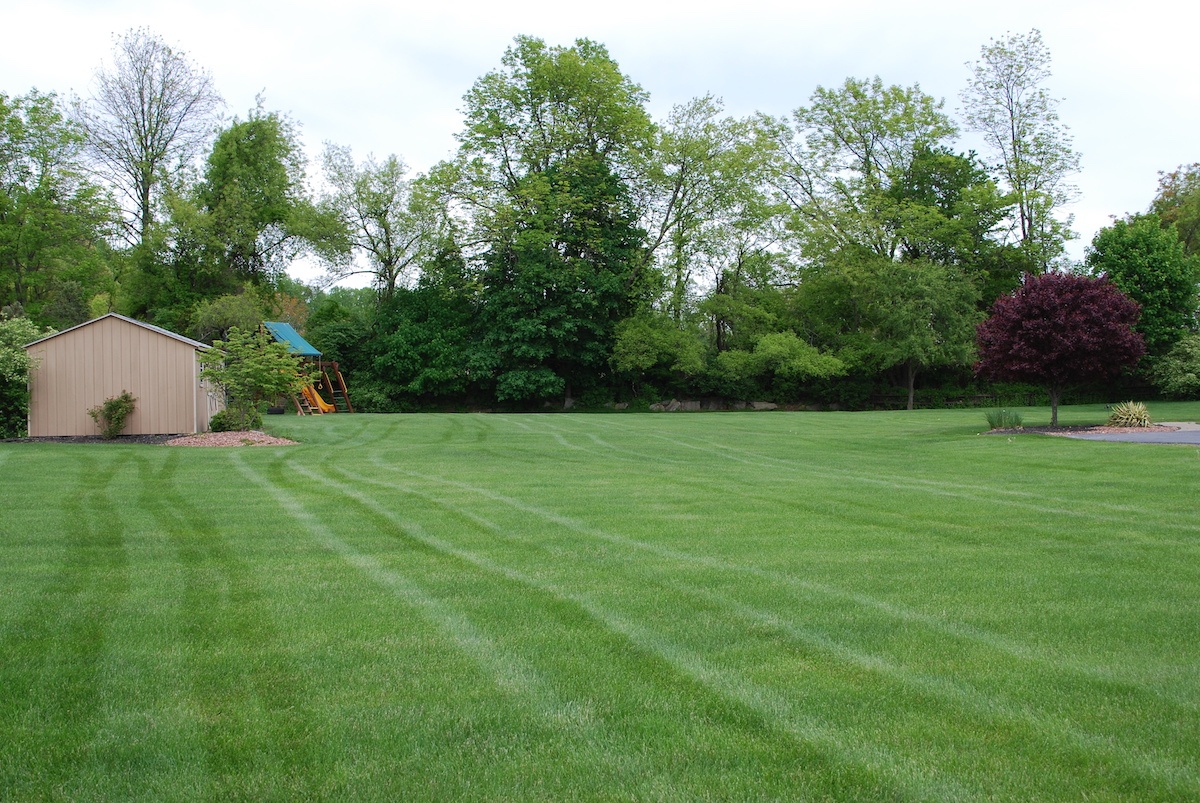 You also want to make sure that you don’t stop mowing too soon. If you stop mowing too early, your long grass may be more prone to snow mold. We also recommend using a mulching blade and returning your grass clippings to the lawn to provide a natural compost.
You also want to make sure that you don’t stop mowing too soon. If you stop mowing too early, your long grass may be more prone to snow mold. We also recommend using a mulching blade and returning your grass clippings to the lawn to provide a natural compost.
And though it’s a lot, it’s ideal to mow one to two times per week, depending on your lawn’s rate of growth. Removing only ⅓ of the grass blade at any given time impacts both the health and appearance of your lawn in a positive way.
Of course, some properties are harder to mow than others. If you have trees with large roots that you’re constantly bumping into or you are frequently brushing up against the bark of the tree itself, you might consider some changes to make mowing easier. Adding buffers around trees and roots with mulch rings, for instance, will allow you to mow those areas with ease.
If this is more than you bargained for with mowing, you could always consider a professional mowing service.
Watering Tips for Both Established Lawns and New Lawns
Water is absolutely essential to the overall health of your lawn but is a task that is easy to overlook. There are also quite a few watering misconceptions that need to be explained. Whether you’ve moved into a home with an existing lawn or one that is brand-new, both will require water—but the amount will vary. Let’s look at watering tips for both types of lawns.
Watering an Established Lawn
Generally speaking, an established lawn requires one to two inches of water per week either via rainfall or supplemental water from a hose or sprinkler system. If your established lawn is looking dull, or you notice your footprints “staying” after walking through your lawn, it may not be receiving as much water as it needs.
Watering a New Lawn
Because new grass plants lack the established root systems of an existing lawn, they’re going to have more intense watering requirements. Leading up to new seed germination, you may need to water your lawn as often as two to three times per day for approximately 15 minutes, anywhere where there are new seeds. It’s important to keep those new seeds moist.
Following germination, you can water less frequently but for longer periods of time. Running the sprinkler for an hour in each location of new growth two to three times per week should do the trick.
New Homeowner Tips on Growing Grass in Shade
Because sunlight is such an important element of your lawn’s health, growing grass in shade can be incredibly challenging. In shade, grass tends to grow thin and lose its lush green color. It’s also a common misconception that shade grass seed mixes don’t require much sun to grow. Even shade mixes require approximately 5 to 6 hours of sunlight each day to grow to its fullest.
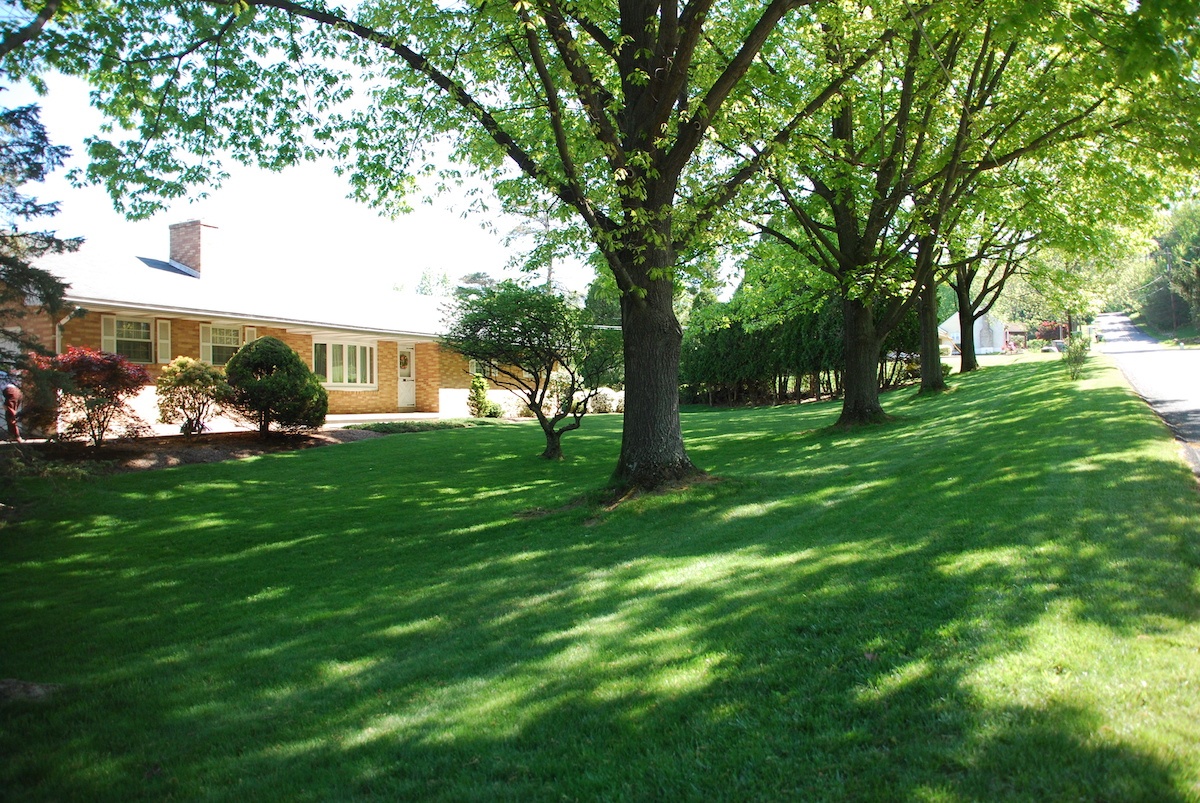 If you’re trying to grow grass in the shade, the best thing that you can do is to get your lawn more sunlight. This can be achieved with tree pruning services, at least to a point. By allowing some filtered light to make it onto your lawn, you might be able to have more success with growth.
If you’re trying to grow grass in the shade, the best thing that you can do is to get your lawn more sunlight. This can be achieved with tree pruning services, at least to a point. By allowing some filtered light to make it onto your lawn, you might be able to have more success with growth.
You could also consider grass alternatives such as creating large mulch rings around your trees, using decorative gravel or even establishing plant beds with shade perennials and shrubs in your shady areas.
How to Improve Your Soil to Improve Your Lawn
If your lawn is struggling, it might actually be a problem with your soil health. The value of soil health is often underestimated but is a key factor in the overall health of your lawn. Whether you have a problem with soil pH, soil fertility, or even soil biology, failing to address these concerns may mean that your lawn will never look or perform as well as it should.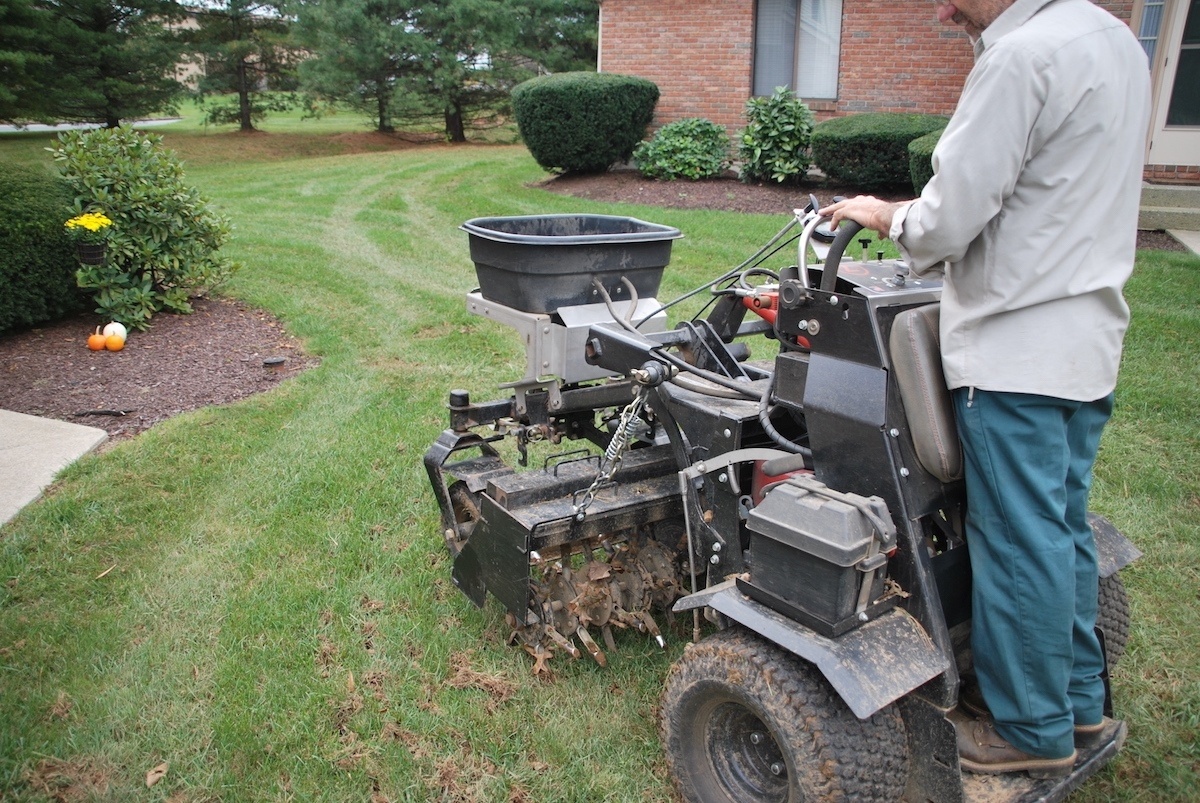 Soil compaction is a big cause of lawn problems. That’s because, with compacted soil, your lawn will also be struggling to receive the nutrients, water, and oxygen it needs to thrive. An annual lawn aeration service is a great way to loosen compacted soil.
Soil compaction is a big cause of lawn problems. That’s because, with compacted soil, your lawn will also be struggling to receive the nutrients, water, and oxygen it needs to thrive. An annual lawn aeration service is a great way to loosen compacted soil.
In addition, the use of a soil test can also provide you with valuable information regarding the overall quality of your soil and what improvements can be made.
New Homeowner Tips for Thickening your Lawn
If you’re looking to thicken up your lawn, then you may want to consider lawn fertilization services. Fertilizer works by giving your lawn the nutrients it needs to perform its best. A nutrient-rich lawn will grow thicker (and greener) and will be able to better defend itself against weeds and other stressors (a point we’ll get to next). It’s a service that will result in an overall healthier lawn.
Dealing with Common Lawn Stressors
Insects, weeds, and disease are three common enemies to a healthy lawn. It wouldn’t be unheard of for your lawn to be battling one or more of these factors at once. Let’s take a brief look at each.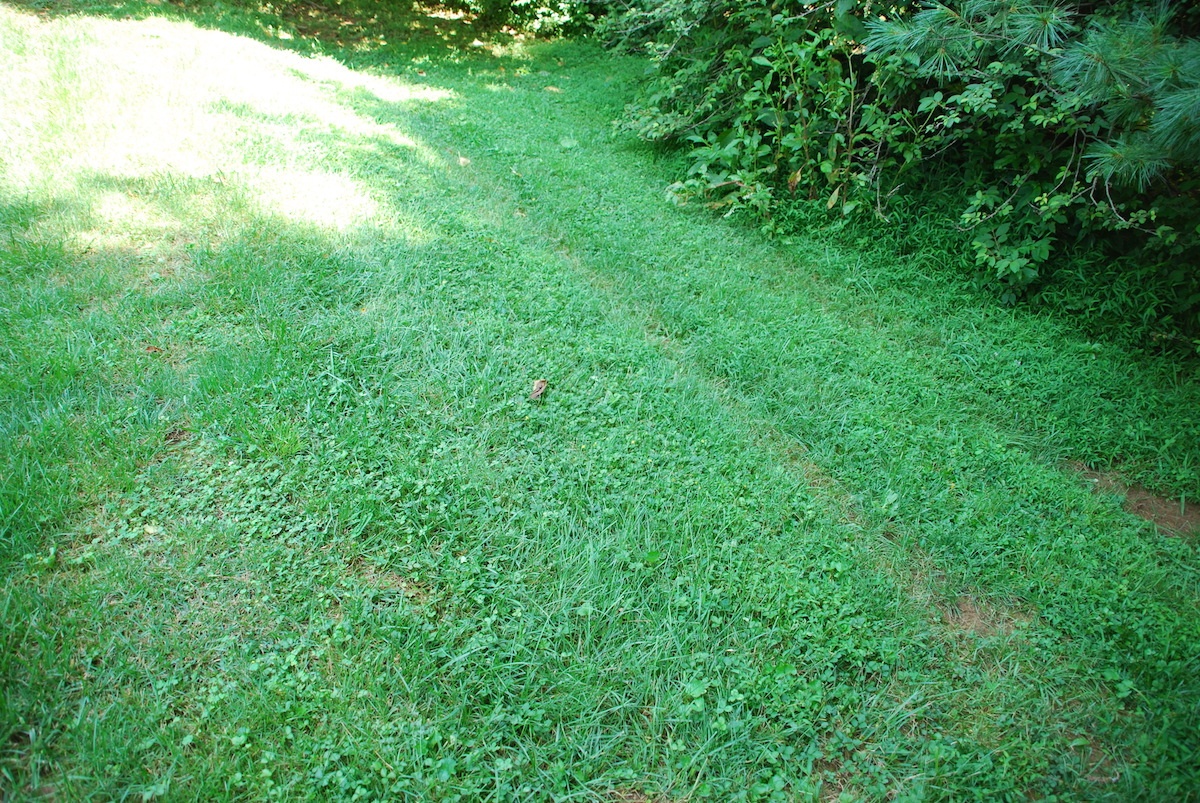
Lawn Weeds
Weeds are a major frustration as they not only detract from the overall beauty of your lawn but they can crowd out healthy turfgrass. That’s why weed control is so important.
Of course, getting weeds under control may require a multi-faceted approach that includes both pre- and post-emergent applications as well as a customized approach to target difficult-to-control weeds like crabgrass, dandelions, and violets, just to name a few
Lawn Insects
There are a number of different lawn pests that could destroy your healthy turf. These include chinch bugs, sod webworms, and grubs. Since different pests require different action, it’s important to work with a lawn care company that can properly identify your pest problem and take the best approach for treatment.
Lawn Disease
Another common stressor that your lawn may face is disease. There are many different types of lawn diseases, many resembling one another, and it takes an expert eye and experience to properly diagnose which disease your lawn may have. Some of the more common lawn diseases include Brown Patch, Red Thread, Dollar Spot, and Pythium Blight.
Finding More Lawn Care Tips for New Homeowners
While this may sound like a lot of information, the truth is, it’s just the tip of the iceberg. Fortunately, there are other resources out there. If you’re looking for more lawn care tips for new homeowners, you might want to explore local university extension offices.
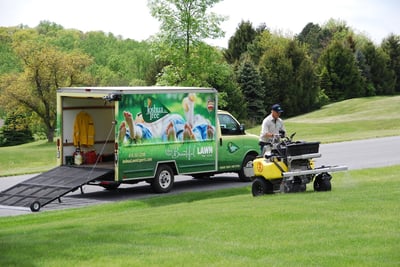
Local companies that offer in-depth articles on their website or lawn care blog can also be incredibly helpful as you learn to navigate your new lawn.
Of course, the more you research lawn care as a new homeowner, the more you may come to realize that having a great lawn is more complicated than you previously thought. That’s not uncommon. Having a thriving and lush lawn is a lot more work than most people initially realize. It’s the reason why many homeowners ultimately turn to a professional.
If lawn care for a new homeowner is shaping up to be more work than you expected, you don’t have to go at it alone. You can work with a professional to take over the tasks that you’d rather not handle yourself.
A lawn care professional will also be trained on the best approaches to lawn care, ensuring that you get the best results. While you may be new to the neighborhood, your lawn will quickly become the envy of all the neighbors. They’ll all be looking for your best lawn care tips.
With the right care for your lawn, you’ll gain valuable peace of mind. If you’re interested in having your lawn inspected and its health assured, contact us for a free quote or give us a call at 833-JTE-TREE.



